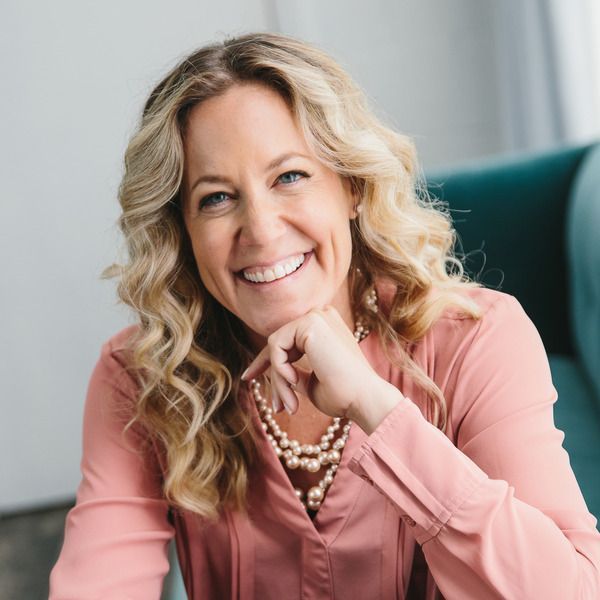Peaceful Parenting in the Real World: When a 16-Year-Old Ran Into Our Car and Ran Away

It’s never good when your phone rings at 11:30 at night (and you're the parent of two teenagers).
I’ve asked my kids to always start with, “Mom, I’m ok.”
“Mom, I’m ok,” said my son, Myles.
Exhale.
He was visiting a friend at their home in Connecticut, and his car was parked on the street. It was well after 10 PM when they heard a knock on the door. A neighbor was coming by to let the homeowner know she saw someone back out of a driveway across the street directly into my kids’ rear car door.
And that they drove away.
“Don’t worry,” said Myles’ friend's mom. “I’m going to head over there and find out who it was.”
It turns out it was a 16-year-old girl with a brand new shiny driver's license. “My daughter doesn’t know her, but I have her name, cell number, and address. I’ll head over there in the morning.”
The next day she called me back to report that the mom became irate, claiming that there “was no way that her daughter did it,” and shut the door on her.
I’d been trying to call this girl; we’ll call her Emma, to no avail. So I sent a text:
“Emma. It seems like your mom didn’t know about your accident last night. I need to hear from you, or my next step will be to call the police. How would you like to handle this? It’s going to be o.k. It’s all figure-outable.”
Shortly after, I received a call. Mom and daughter showed up at Myles’ friend’s house. The mother was furious. And Emma? She was a basket case.
Shaking. Crying. Devastated.
Yes, she made a wrong decision after making an oh-so-human mistake. But as the founder of a Peaceful Parenting Institute, my heart broke for her. This incident is, however, a useful scenario to examine how parenting styles guide our children to make the choices they make in the moments they make them.
99% of people, I’m sure, would agree that Emma should have been in a lot of trouble, but I’m curious about the conditions that led to her feeling that she couldn’t tell her parents about this minor accident. I’m curious why she ran away. I’m curious why she was
so scared.
Traditional parenting insists that the parent has authority over the child. With authority as a guiding principle, we don’t give children a chance to develop the inner authority and locus of control that will allow them to thrive as adults. This parenting approach also offers parents a lot of leeway to excuse authoritarian (power-over) behaviors in the guise of authoritative parenting.
We aren’t the dictators of our family; we are leaders. And effective leaders inspire rather than demand. Through this lens, we can see that control can’t be the answer.
The four traditional
psychological parenting styles—authoritarian, authoritative, permissive, and neglectful—are modeled on two axes. So, if a parent is highly demanding and responsive, they would fall into the authoritative quadrant.
This model is missing something vital—children's and parents' emotions, feelings, and needs. There is inflexibility in the traditional model when modern parenting is better served with flexibility. The idea that we should always be highly responsive and demanding puts too much pressure on parents and kids.
Yes, there are some times when we have to be highly responsive and demanding. When our child is in physical danger, it is not the time to explore inner emotions. Of course, we must exert our authority in those moments and situations. And there are other times when we need to tend to our fears and allow our children a very long leash, taking a more passive stance, giving them space to feel their limits and freedom (when they get their driver’s license, for example).
I’m guessing that Emma has experienced much ‘getting in trouble’ and parental control. The world tells parents they should give their kids ‘tough love,’ punish them, and yell at them when they make mistakes. But we must look at the cost because this could have been so much worse.
Trust between parents and children, especially as they grow older, saves lives.
Peaceful Parenting preserves trust. When children aren’t implicitly and explicitly told that they are less than when they mess up but are encouraged, guided, and led to take responsibility, ownership, and accountability for their actions, they come
to us when they're in trouble.
Here’s how this would have gone down if the roles between Emma and Myles were reversed.
Not because Myles is a better person but (and I know I’m hypothesizing a bit here, I don’t know Emma and her mom, other than through this one experience) because I parented him in a non-traditional way:
“Mom. I messed up. I was backing out of a driveway. I hit someone’s car.”
“Oh, honey. Are you ok? Do you know whose car it is?”
“No.”
“Alright, son. Well, I guess you get to knock on some doors. Call me back when you find the owner.”
Sometime later:
“Hey, Mom. I found the owner. They are REALLY mad.”
“Yes, I bet they are. Are they there with you?”
“Yes.”
“Ok, do you know what to do when you cause an accident?”
“Yep. I already gave them my insurance card and driver's license.”
“Give them your phone number too. And mine. What do you do next?”
“I call the insurance company and tell them what happened.”
“Yep, so go do that. And then tomorrow we can talk about your responsibility here. So, most likely, your insurance payment will go up, and you’ll need to pay the deductible to fix their car.”
“I know, Mom. I’ll pay for this. And be more careful.”
“Ok, son. I’m so glad this was a minor accident, and you’re ok. I’ll talk to you tomorrow. I love you.”
“I love you too, Mom.”
One of the frameworks we teach in our Parent Coach Certification Program is the Jai 5-Step PEACE Process. This is the structure that effectively replaces punishments, consequences and threats.
Claim you FREE ACCESS
and learn more about Peaceful
Parenting…
Meet Your Author, Kiva Schuler
Jai Founder and CEO
Kiva’s passion for parenting stemmed from her own childhood experiences of neglect and trauma. Like many of her generation, she had a front row seat to witnessing what she did not want for her own children. And in many ways, Jai is the fulfillment of a promise that she made to herself when she was 16 years old… that when she had children of her own, she would learn to parent them with compassion, consistency and communication.
Kiva is a serial entrepreneur, and has been the marketer behind many transformational brands. Passionate about bringing authenticity and integrity to marketing and sales, she’s a sought after mentor, speaker and coach.
Share This Article:
Curious for more?














